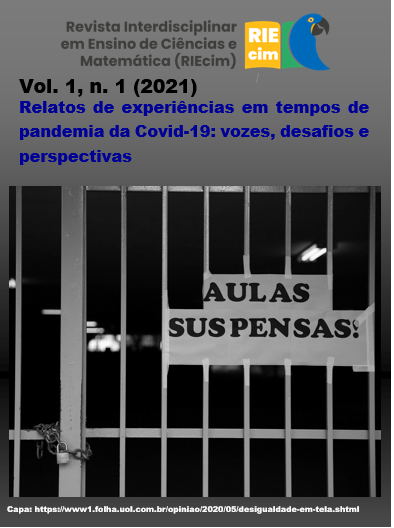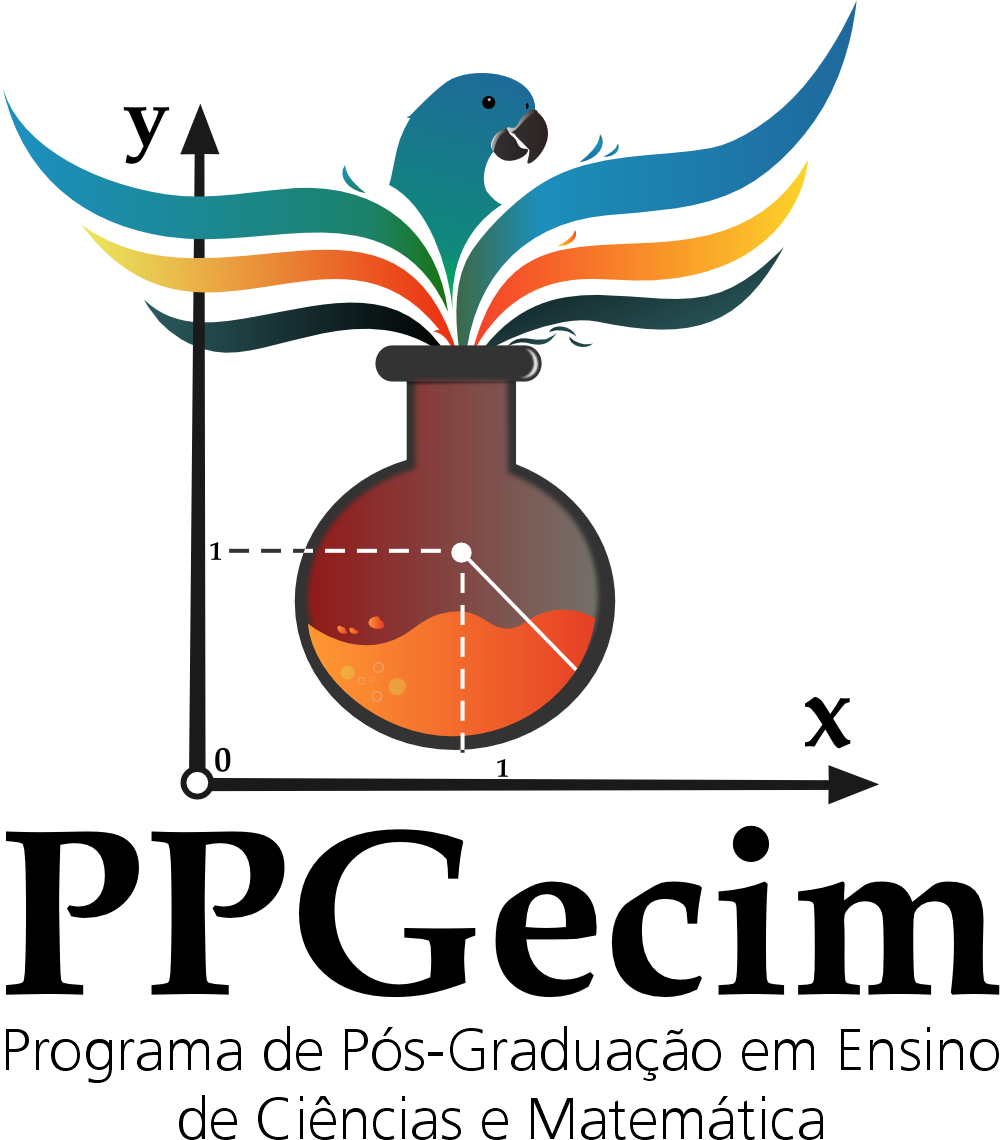TEACHING AND LEARNING PHYSICS IN REMOTE TIMES:
A (RE)LOOK AT THE FORMATIVE EXPERIENCE
DOI:
https://doi.org/10.20873/riecim.v1i1.11798Keywords:
Ensino de Física, Ensino remoto, Narrativa autobiográfica, Aprendizagem científicaAbstract
Neste artigo apresento uma vivência docente com o objetivo de compreender como se constituem o ensinar e o aprender (apreender) Física em uma experiência formativa no ensino remoto. Como pesquisador qualitativo, assumo a narrativa autobiográfica para (re)contar e (re)viver uma história que, certamente está sendo vivida por todos os professores no Brasil. No caminhar metodológico, anuncio duas dimensões, a saber: (a) planejar é preciso: um lançar-se sobre as perspectivas do ensinar Física em tempos remotos; e, (b) a aprendizagem em Física em evidência: o agir pedagogicamente. Estas dimensões tecem apontamentos importantes do planejamento pedagógico subsidiado para o ensino remoto, a fim sistematizar saberes científicos na formação (e na aprendizagem) dos estudantes.
References
BRASIL. Base Nacional Comum Curricular (BNCC). Brasília: MEC, 2018. Disponível em <
http://basenacionalcomum.mec.gov.br/>. Acesso: 15 mar. 2021.
BROLEZZI, Antonio Carlos. Empatia na relação aluno/professor/conhecimento. Encontro:
Revista de Psicologia, Londrina/PR, v.17, n.27, p. 1-21, 2014.
DESLAURIERS Jean-Pierre. Recherche qualitative: guide pratique. Québec (Ca):
McGrawHill, Éditeurs, 1991
DESLAURIERS, Jean-Pierre; KÉRISIT, Michéle. O delineamento de pesquisa qualitativa.
IN: POUPART, Jean; DESLAURIERS, Jean-Pierre; GROULX; Lionel-H.; LAPERRIÈRE,
Anne; MAYER, Robert; PIRES, Álvaro P. (Orgs.). A pesquisa qualitativa: enfoques
epistemológicos e metodológicos. 4.ed. Tradução Ana Cristina Nasser. Petrópolis: Vozes,
p. 127-53. 464p.
FERRAROTTI, Franco. Sobre a autonomia do método autobiográfico. In: FINGER, Mathias;
NÓVOA, António Sampaio da. (Org.). O método (auto)biográfico e a formação. Cadernos de
Formação 1. Lisboa: Ministério da Saúde, p.19-34, 1988.
GREF - Grupo de Reelaboração do Ensino de Física. Coordenação de Luiz Carlos Menezes,
João Zanetic e Yassuko Hosoume. Física 2: Física Térmica e Óptica. 4. ed., São Paulo:
EDUSP, 1998.
MINAYO, Maria Cecília de Souza. (Org.). Pesquisa social: teoria, método e criatividade.
Petrópolis: Vozes, 2001.
PASSEGGI, Maria da Conceição; BARBOSA, Tayana Mabel; CARRILHO, Maria de
Fátima; MELO, Maria José Medeiros de; COSTA, Patrícia Lúcia da. Formação e Pesquisa
autobiográfica. In: SOUZA, Elizeu Clementino de (Org.) Autobiografias, histórias de vida e
formação: pesquisa e ensino. Porto Alegre: EDIPUCRS: EDUNEB, 2006.
RODRIGUES-MOURA, Sebastião. Por entre a realidade e as possibilidades narradas por
professores em formação: em tela, o ensino remoto em tempos de pandemia. In: Ensino
remoto em debate. Francisco Pessoa de Paiva Júnior (Organizador). - 1. ed. -- Belém: RFB
Editora, 2020. DOI: https://doi.org/10.46898/rfb.9786558890607.6
SHAMAY-TSOORY, Simone G. Empathic processing: its cognitive and affective dimensions
and neuroanatomical basis. In: DECETY, Jean; ICKES, William John. (Org.) The social
neuroscience of empathy. Cambridge: MIT, 2009. p. 215-232.
WENGER, Etienne. Communities of practice: Learning, meaning and identity. Cambridge,
England: Cambridge University Press, 1998.
Downloads
Published
How to Cite
Issue
Section
License
Copyright (c) 2021 Sebastião Rodrigues-Moura

This work is licensed under a Creative Commons Attribution-NonCommercial 4.0 International License.
Copyright Policy
Copyrights are retained by the authors, who grant RIEcim the exclusive rights for first publication. Authors will not be remunerated for the publication of their work in this journal. Authors are permitted to enter into separate, additional contractual arrangements for the non-exclusive distribution of the work's published version in this journal (e.g., post it to an institutional repository, on a personal website, publish a translation, or as a book chapter), with acknowledgement of authorship and initial publication in this journal. The Journal's editors have the right to make textual adjustments and adaptations to conform to publication standards.
Open Access Policy
This journal provides immediate open access to its content, following the principle that freely providing scientific knowledge to the public contributes to the global democratization of knowledge. Users can read, download, copy, distribute, print, search, or use the content for any legal purpose, respecting national copyright laws and without seeking prior permission from the publisher or the author. The opinions presented in the articles are the responsibility of the authors. The Journal does not charge Article Processing Charges (APCs).
Licensing Policy - Usage License
Licensed under the Creative Commons Attribution-NonCommercial 4.0 International (CC BY-NC 4.0) License. This license allows sharing, copying, redistributing the manuscripts published in RIEcim in any medium or format. Additionally, it allows adapting, remixing, transforming, and building upon the material, as long as proper credit is given to the author and initial publication in this journal is acknowledged.

































